Mastering Network Security – Ethical Hacking Course Can Make You an Expert
In today’s digital era, where data breaches and cyberattacks are becoming more frequent and sophisticated, network security has become a critical concern for organizations worldwide. As a result, the demand for cybersecurity professionals with expertise in protecting digital systems has skyrocketed. One of the most effective ways to gain the necessary skills and knowledge to combat cyber threats is by enrolling in an Ethical Hacking course. These courses provide individuals with the technical expertise to identify vulnerabilities, prevent attacks, and secure networks from malicious hackers. Mastering network security through ethical hacking offers the opportunity to become an expert in safeguarding organizations from a wide array of cyber threats. Ethical hacking, also known as penetration testing or white-hat hacking, involves using the same tools and techniques as black-hat hackers but with the permission of the organization to test its defenses. By understanding the methods employed by cybercriminals, ethical hackers are able to identify weaknesses in a system before they can be exploited. Ethical hackers conduct security assessments, simulate attacks, and report vulnerabilities to the organization, allowing them to take proactive measures to enhance their security posture.

A comprehensive Ethical Hacking course typically covers a wide range of topics, including network protocols, penetration testing techniques, cryptography, firewalls, intrusion detection systems, and vulnerability assessment. Students will learn how to use various hacking tools and software that allow them to conduct penetration testing, identify network vulnerabilities, and exploit weaknesses in a controlled and ethical environment. Additionally, the course will introduce students to ethical hacking laws and regulations, emphasizing the importance of ethical behavior when conducting security assessments. By taking an Ethical Hacking course, individuals will also gain practical experience in performing vulnerability assessments and ethical hacking in real-world scenarios. This hands-on training ensures that students develop a solid understanding of how cyber attackers operate and the best practices for defending against them. Ethical hacking courses often include simulated lab environments where students can practice their skills, and some even provide certifications upon completion, which can significantly enhance an individual’s career prospects.
One of the most valuable benefits of mastering network security through corso ethical hacker is the opportunity to enter a rapidly growing and lucrative job market. The demand for skilled cybersecurity professionals is expected to rise exponentially in the coming years, with a particular focus on ethical hackers. Organizations across all industries, from finance and healthcare to government and retail, require trained experts who can safeguard their networks and systems from cyberattacks. By becoming proficient in ethical hacking, individuals can position themselves as highly sought-after professionals in this in-demand field. An ethical Hacking course is an essential stepping stone for anyone looking to master network security and pursue a career in cybersecurity. These courses equip individuals with the technical knowledge, practical experience, and ethical framework required to protect organizations from cyber threats. As cyberattacks continue to evolve, the need for qualified ethical hackers will only grow, making this an exciting and rewarding field to enter. Whether you are looking to enhance your current skill set or embark on a new career path, mastering network security through ethical hacking is an excellent way to become an expert in one of the most critical areas of modern technology.


